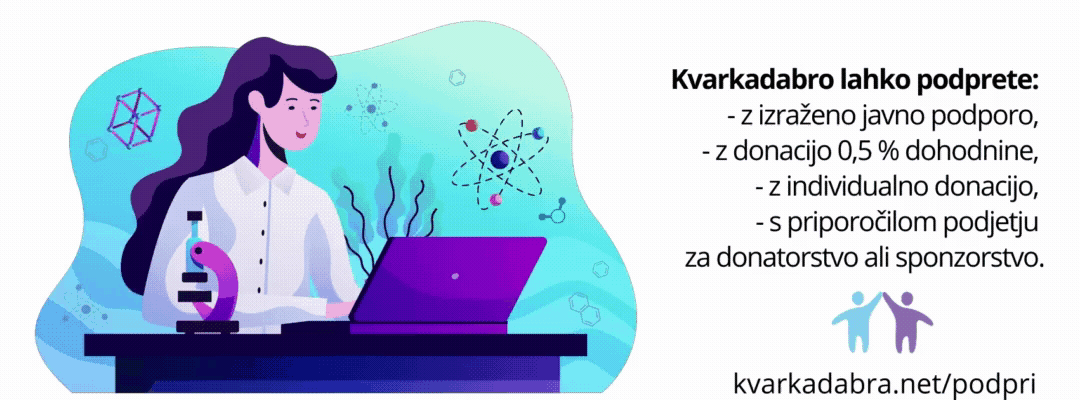Zanimiv komentar Anite Makri v reviji Nature:
What is truth? How do we find it and does it still carry weight in public debate? Given recent political events, these are important and urgent questions. But of the two industries I work in that are concerned with truth — science and journalism — only the latter has seriously engaged and looked for answers. Scientists need to catch up, or they risk further marginalization in a society that is increasingly weighing evidence and making decisions without them.
… what’s overlooked by many is how science is losing its relevance as a source of truth. To reclaim this relevance, scientists, communicators, institutions and funders must work to change the way that socially relevant science is presented to the public. This is not about better media training for researchers. It demands a rethink about the kind of science that we want to communicate to broader society. This message may sound familiar but the new focus on post-truth shows there is now a tangible danger that must be addressed.
… People expect science to offer authoritative conclusions that correspond to the deterministic model. When there’s incomplete information, imperfect knowledge or changing advice — all part and parcel of science — its authority seems to be undermined. We see this in the public debate over food and health: first, fat was bad and now it’s sugar. A popular conclusion of that shifting scientific ground is that experts don’t know what they’re talking about.
But the questions that people face in their lives typically rely on incremental science, a kind that accumulates evidence about complex systems with numerous variables and fuzzy social parameters. It feeds into policy and decisions about how to handle environmental pollution, vaccine safety, emerging infections, drug risks, food choices or the impacts of climate change.
This kind of socially relevant science and discussion of uncertainty does feature in the media, but it is more typical of articles that discuss the politics and the controversies around it, perhaps under the label of environment or health. This is not about manipulating or persuading the public to accept decisions, but rather providing them with the tools with which to make sense of the evidence, put the uncertainties in perspective and judge for themselves what contribution scientific information makes to truth. Without that capacity, emotions and beliefs that pander to false certainties become more credible.
It’s more difficult to talk about science that’s inconclusive, ambivalent, incremental and even political — it requires a shift in thinking and it does carry risks. If not communicated carefully, the idea that scientists sometimes ‘don’t know’ can open the door to those who want to contest evidence.
… Public-engagement programmes of research, educational or cultural institutions are an obvious option. Closer links between educators, communicators and scientists can also strengthen how socially relevant science is represented in articles and curricula. Wider trends aren’t incentivizing this sort of science story. So the push will need to come from science first. For example, science academies could offer more grants to support more-sophisticated journalism.
(Vir: Give the public the tools to trust scientists : Nature News & Comment)








